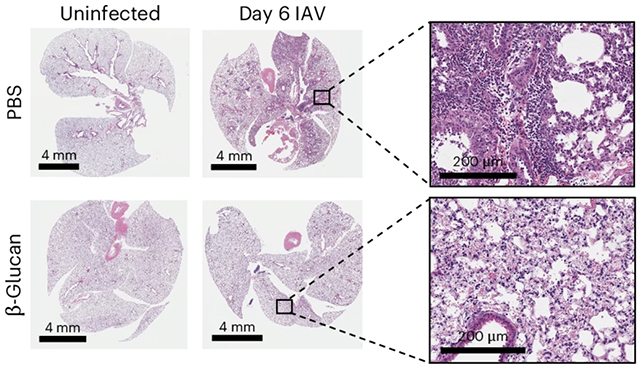
Mushrooms, often overlooked, are a remarkable type of fungi with significant health benefits. Previous studies have indicated that mushrooms can lower the risk of depression, enhance brain cell development, and act as a shield against cancer. A recent study suggests that they may also offer protection against influenza.
A research team from McGill University in Canada discovered that the beta-glucan fibers present in various mushroom species could act as a protective barrier against the flu. These fibers help reduce lung inflammation in mice infected by the virus after receiving beta-glucan.
Additionally, the mice that consumed these fibers displayed improved lung functionality and experienced a reduced likelihood of severe illness or mortality from the flu. While human trials are necessary for further insights, these findings open an exciting new path for scientific inquiry.

According to Maziar Divangahi, an immunologist at McGill University, “Beta-glucan is present in the cell walls of all fungi, including those that naturally reside in and on our bodies as part of the human microbiome.”
He adds, “It raises an interesting possibility that the diversity and quantity of fungi in a person’s system may influence their immune response to infections, potentially due to the presence of beta-glucan.”
Beta-glucan is already recognized for its ability to enhance immune function, yet this research aimed to assess its effectiveness in promoting disease tolerance. This means reducing the negative effects of viral infections on the body rather than simply targeting and eliminating the pathogens as traditional antiviral treatments do.
Interestingly, beta-glucan appears to reprogram immune cells to better handle flu infections. The treated mice exhibited an increased number of immune cells known as neutrophils, yet these cells demonstrated a more regulated response compared to usual.
The researchers believe that this reprogramming is vital, as it decreases the likelihood of neutrophils overreacting to infections, which often leads to lung inflammation and serious complications such as pneumonia following a flu infection.
“Traditionally, neutrophils are recognized for their role in causing inflammation, but beta-glucan can shift their activity to mitigate it,” explains Kim Tran, an immunologist from McGill University.
The modified neutrophils also persisted for up to a month, suggesting that beta-glucan-based treatment could provide prolonged protection, although our understanding of its potential in this regard is still in the nascent stages.
While we acknowledge the life-saving advantages of disease tolerance, much remains unknown about its inner workings. This study offers valuable insights and could pave the way for future exploration in other respiratory diseases.
Nargis Khan, an immunologist now at the University of Calgary in Canada, emphasizes, “It’s astounding how beta-glucan can reprogram specific immune cells, like neutrophils, to manage excessive lung inflammation.”
This groundbreaking research has been published in Nature Immunology.









